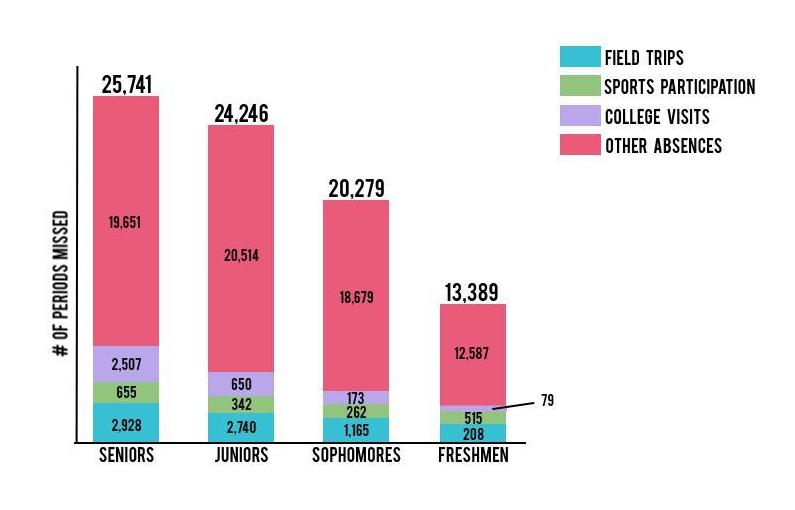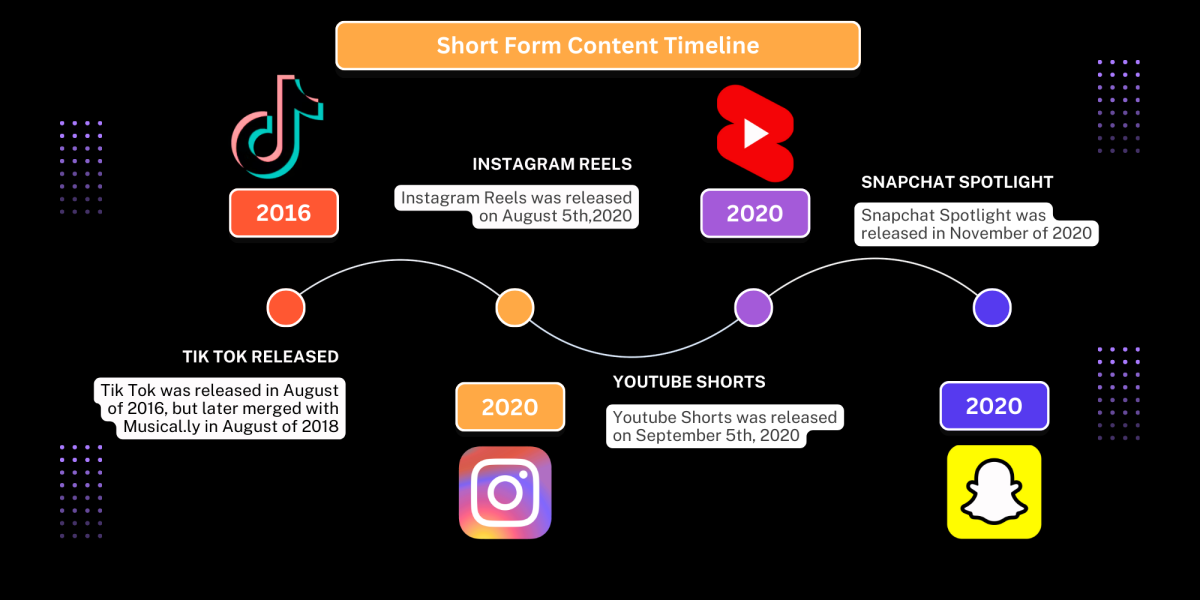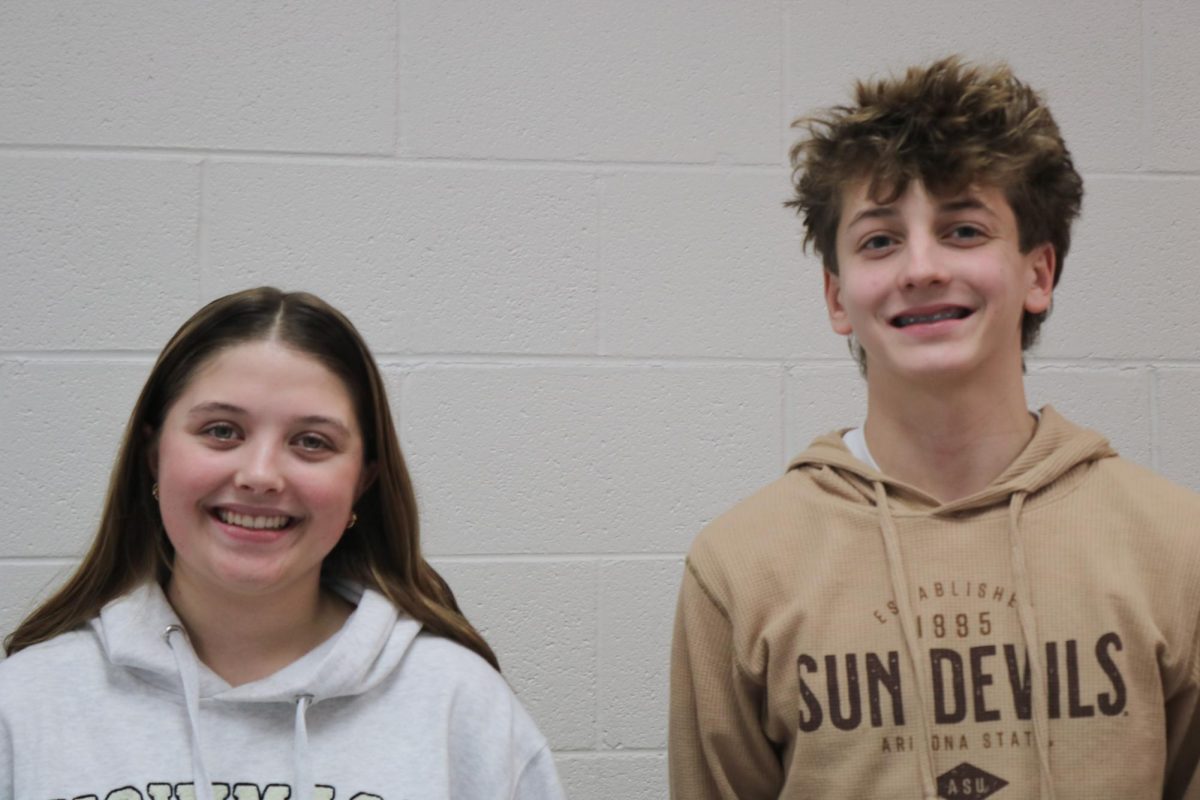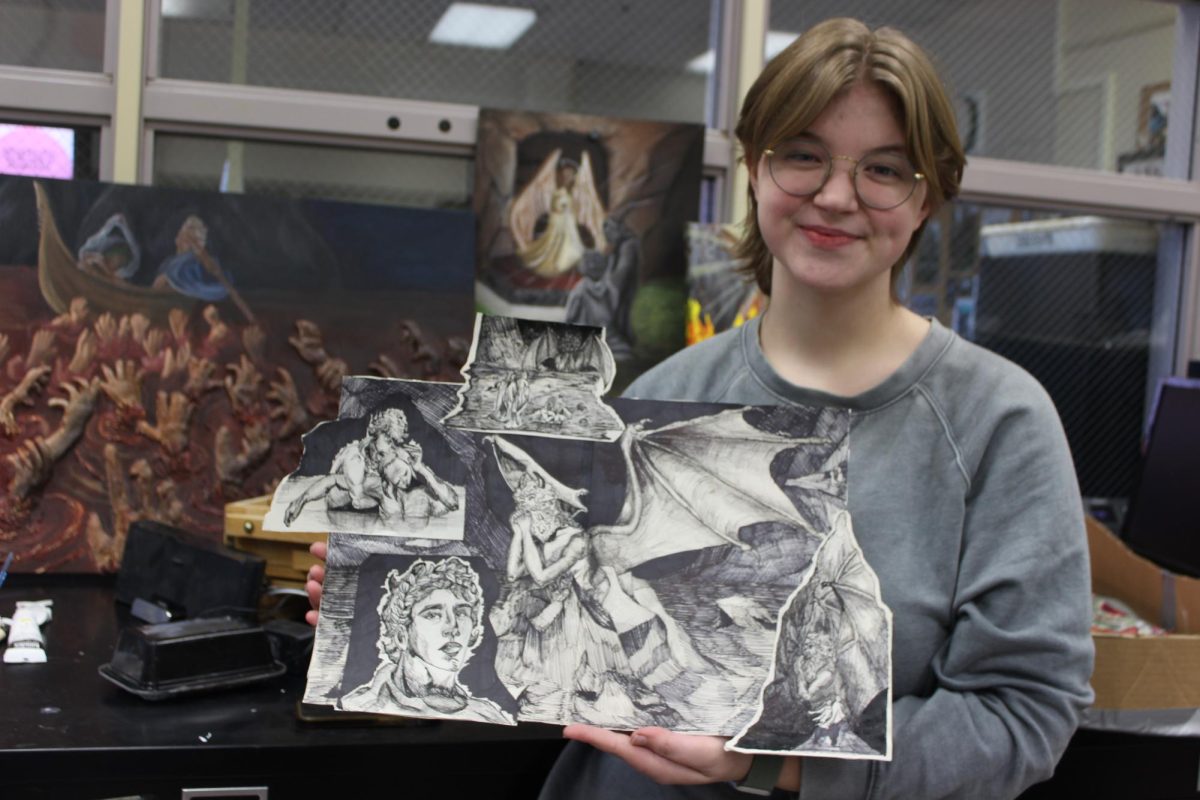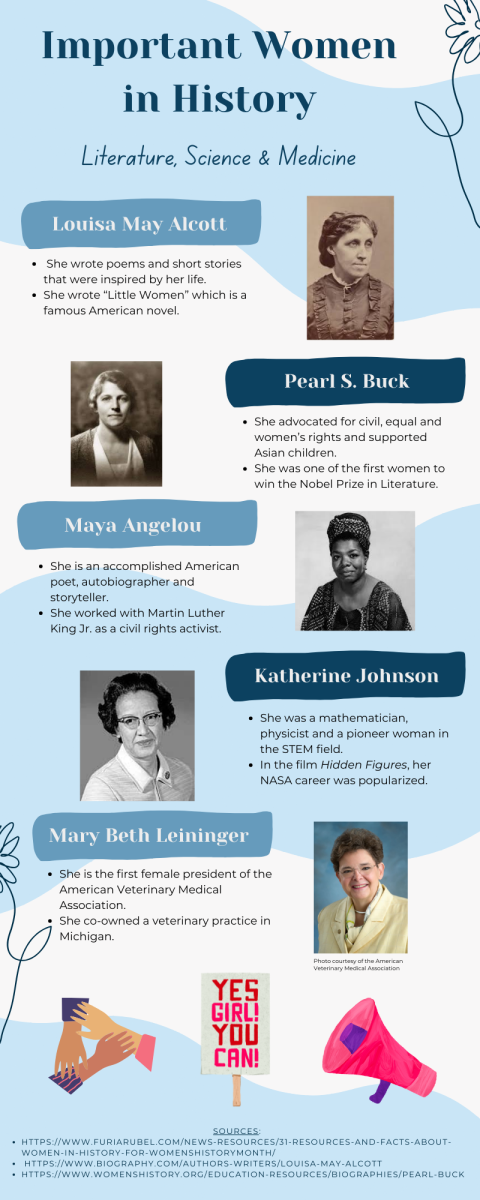Flu-like Symptoms, Immunizations and Homebound are only three of the 40 attendance codes Libertyville High School uses, which is more than most other schools, according to attendance and transcript manager Michelle Jones. Although some students enjoy missing school, being absent can also be stressful as a high school student. Field trips, college visits, sports and everything-in-between contributed to 83,655 periods missed by students from the beginning of the school year through Feb. 6.
Overall Absences
Overall, seniors miss far more days of school than any other grade for many reasons, from field trips to college visits to sports absences. One day in particular seniors miss is Senior Ditch Day, which is the Monday after Prom. This school year, Ditch Day is Monday, May 15.
Although most seniors do not come to school out of tradition, Mrs. Barbara Whalen, a secretary in the A-F LST, said not all seniors ditch: “A lot of them are here because of sports or a test.”
On Friday, Nov. 4, the day of the Cubs’ World Series championship parade, more juniors missed school that any other grade. Seniors missed 498 periods; juniors, 515; sophomores, 505; and freshmen, 452.
Mrs. Whalen suggested a reason as to why this may be the case: “If [seniors] want to participate [in sports], they have to be here. Plus, I think they’re pretty serious about their academics, more serious than other classes, maybe, because they’re applying for college; it’s the semester where all of their applications are going in for college. So I think that might be another reason why there were more seniors here than juniors.”
Mrs. Kristi Robertson, who teaches AP and Honors U.S. History, said she was “neutral” in terms of students being at school that day: “I completely understood; I didn’t take it personally…I mean, that was a big deal for sports fans!”
Field Trips
Students and teachers alike have contrasting views about field trips: some love them and some hate them. However, any controversy, stress of make-up work, teacher disapproval or peer pressure did not stop the 917 students who have already been on field trips this year.
According to AP European History teacher Mr. Kevin O’Neill, field trips can be hit or miss when it comes to the worth of a day away from the classroom: “Any field trip needs to be weighed against what you’re missing, the value of the field trip versus the value of what you’re missing in school that day.”
Though some field trips provide unique opportunities for learning, Mr. O’Neill feels that all too often, they are not properly weighed against the extra work that not only the student, but also the teacher, will have to do to catch the student up.
From a student’s perspective, junior Claire Mills discussed how the AP Biology field trip from earlier this year was “something that we could never get to do in any other environment.” The class took measurements, did actual field work, and really embraced the opportunity to do work that they would do if they worked in the biology field.
In regards to extracurricular field trips, Mills attends Model U.N. conferences several times throughout the year. Though this is a club, students put in time and work into each trip. Club trips occur multiple times a year, and students have some say in which trips they go on. Mills cited this as a great way to feel in control of absences, saying that the ability to select trips “makes it feel more like you’re choosing that you’re going instead of [it being] a requirement for a class.”
Sports
Seniors are absent more often than other grades due to sports participation. In past years, several varsity sports have gone to IHSA state competitions. Because seniors take up so many spots on varsity sports teams, they are the ones that are most often absent. Juniors take up many spots on varsity as well, so they too have many sports-related absences.
This school year, seniors have missed more than 300 more periods than juniors from sports absences. Junior, sophomore, and freshman sports absences are 342, 262, and 208 periods, respectively. The younger the athlete, the less school they tend to miss.
Emma Peterson, a freshman on the varsity dance team, said that missing school for competitions is stressful but worth it: “It’s pretty hard knowing you’ve got to be at the competition all day and knowing you still have school on the side. But it’s really important also knowing you’ve committed to something like poms; it’s a really big accomplishment for a team to be able to get to State, so I was really happy that we made it. But I think it’s okay to be able to make up the work afterwards.”
The varsity dance coach, Ms. Casey Dugan, agrees that students are able to manage the stress of missing school for the state competition. “In terms of schoolwork, the team I [had] this season is very responsible and did a lot of the work ahead of time,” she said. “And we would talk to them about nights before competitions; they should be in, resting, doing homework so that they’re not stressed out the next day.”
College Visits
Ms. Amy Belstra, LHS college counselor, explained that college visits begin having “real value” during sophomore year. Out of the 517 students absent for college visits this year, seven are freshmen: “Freshman year, if you’re going with your older brother or sister and you just go because mom and dad say you’re coming, that’s fine, but it doesn’t mean anything,” Ms. Belstra said.
Ms. Belstra believes that college visits make an impact on decisions about attending a school, and that, “in an ideal world, if the student has the means to go and visit a college campus, that is something they should do.”
However, missing school for a college visit can be problematic for a student when it comes to make-up work. Ms. Belstra believes that if a student plans ahead and talks to their teachers in advance, instead of deciding last minute to miss school for a visit, they will be much better equipped to return to school without feeling behind or with copious amounts of work to make up.
Senior Johanna Nimmer has been missing every Friday since mid-January, and will continue that pattern until the end of March, to attend college visits and auditions for their musical theatre programs. She explained that getting the work is “pretty easy. A lot of my teachers are really good about it. It’s making it up that takes a while.”
Nimmer also believes that visiting these schools has helped her make more concrete decisions about college, which she could not have made without visiting the campus, and she has “fallen in love with schools she never expected to.”



